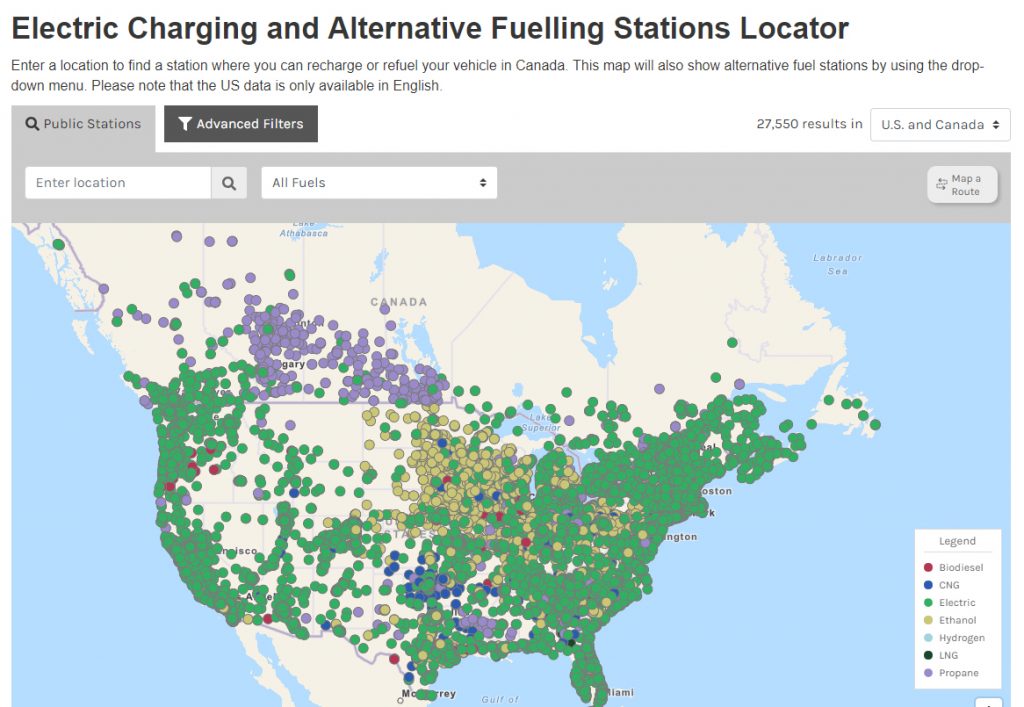
Superchargers can be used to quickly charge electric vehicles. It can power up your battery in 15 minutes, as opposed to the hour it might take to charge it with your regular charger. These chargers are used mostly by Tesla EV owners, as they are designed for the manufacturer's vehicles. However, other electric car brands, such as the Chevrolet Bolt and the Nissan LEAF, are also able to use them. The cost of each charge is only $0.30.
The best way to extend the battery's lifespan is to use a supercharger. But, superchargers can cause serious damage, especially if they are frequently used. You can prevent this by using a slower charging rate. This will extend the life of your battery cells and let you drive further without worrying.
This technology is not new but it is not well-known to most consumers. In fact, most homes don't have a dedicated circuit to charge a car. A home charging station is usually just an outlet for an electric clothes dryer. However, a supercharger uses a higher voltage. It can even reach 480 volts.

Another good thing about a supercharger is that it's cheaper than buying a tank of gas. To charge a 100-kilowatthour battery (kWh), it costs approximately $0.30. The price will vary depending on where the vehicle is located. The DC charger is also available to charge your Tesla vehicle at-home. You can also charge your car with a DC charger if you have a dedicated 240-volt outlet in your home.
Supercharging your vehicle can save you money and give you an advantage on your next adventure. People find that having an electric vehicle is fun and exciting. It can be recharged in just minutes. A lot of people love the idea that their vehicles can be monitored at all times.
The Electrify America network is building a comprehensive fast charging network across the US. It has already operated 461 chargers and recently completed its second cross-country route. The network currently includes a thorough corridor running from Florida to Chicago.
In addition to the supercharger, the Electric Vehicle SuperCharger is a must-have for trike playhouses, as it features a realistic-looking pump handle, charging graphics, and social interaction. You can attach it directly to any trike playhouse for more fun.

While the supercharger has not yet been opened to non-Tesla EVs, it is a step in the right direction. Eventually, other manufacturers will be able to use the same charger. The company also announced that it will expand its supercharger network to other countries. In the next 12 months, the company will open its first supercharger for V4 vehicles in Yuma County Arizona.
It's not known if the Electrify America Network will be the next Tesla. It is possible that it could be a breakthrough in the EV sector.
FAQ
What is the best career for an automotive mechanic?
If you are determined to excel, the automotive industry offers many opportunities. The best way to succeed in this field is by working hard and learning as much as possible from others.
Your job will require you to be a good communicator as you'll be talking to customers and other employees. You must also be willing and able to travel long distances, which can make it difficult to commute.
If you're interested in pursuing a career in automotive, consider taking classes at community colleges and universities. Many schools offer programs designed specifically for students interested auto repair, sales, and customer services.
If you decide to pursue a degree, you should study mechanical engineering. You can earn a bachelor's in as little four years.
Many employers will hire graduates straight out from school. It's a smart idea to begin looking for work while you have the opportunity to study part-time.
After you have completed your education, you will likely need some training to be able to work as an automotive technician.
You will need to pass the Automotive Service Excellence certification exam. This test covers topics including engine maintenance, brakes, steering systems, suspension, and more.
Once you pass the ASE test, your license can be applied for by the National Institute for Automotive Service Excellence.
You can repair vehicles owned by private citizens with a license. In exchange, you'll receive compensation based on the number of services performed.
Not all states require licensing. However, licensing is required for anyone who plans to work outside the home state.
Some states do not issue licenses until they have received a certain amount or training. If this is you, you may need another option.
How can I fix my automobile as a hobby.
If you are interested in cars, why not take it on as a hobby? You can repair them, buy their parts, sell them, or just have fun with them. If you are looking for something more, it would be an excellent hobby.
It's difficult to make this a fulltime job. It requires hard work and dedication. It requires a lot investment.
If you don't have any good reasons to be involved in cars, it may be better to just let it go.
What is the average time it takes to become a mechanic?
It takes years of practice and experience to become an expert mechanic. You can learn the most effective way to fix cars by learning from a professional mechanic.
You will have to spend time in a garage learning about cars and mechanics. It is important to get familiar with the mechanics of cars and engineering.
You will also need to go to auto school.
It's crucial to start as soon as possible. It doesn't matter if you're old or not to study automotive technology. You can get certified as a mechanic by getting started right away!
What qualifications do you need to be a truck-mechanic?
Although you don't need to have any formal qualifications, your experience working with trucks and engines is invaluable. You are a valuable asset as you can quickly diagnose and solve problems efficiently.
Additionally, you have a solid knowledge of diesel technology that will enable you to determine what parts are necessary to repair our vehicles.
What qualifications are required to become a mechanic
A series of exams is necessary to become a mechanic. These include:
-
A test of general knowledge
-
A practical exam
-
An apprenticeship test
These tests are designed for you to understand the basic concepts and principles of mechanics before your start as a technician.
Once you pass these tests you can become a mechanic. However, you'll still need to complete an apprenticeship. This will involve training in your trade.
To fully understand the mechanics of vehicle repairs, you'll need workshops and classes. You'll also have to work alongside experienced mechanics.
For mechanic success, you'll need to be focused and meticulous. It is essential to pay attention to all aspects of vehicle repairs.
You'll need patience and persistence to become a successful mechanic. If you don’t like following directions, then this career path may not suit you.
But if you love cars and enjoy fixing them, you could be very happy in this line of work.
Is it worth becoming a mechanic?
The answer depends on what you are looking for in life. If money is your goal, then you can answer "yes". But if you are searching for meaning and purpose, then you should not answer this question.
You don't need to be a mechanic if you don't know how. It's not going make you millionaire. It will not make you famous. You won't be famous.
You'd need to spend years learning how everything works. Also, you would need to hire someone else to fix it if it broke down. It's the reason most people don't bother. They find something more worthwhile.
You can make a lot of money if you are looking to do well. But if you want to live a meaningful life, stay away from the mechanic's industry.
How long does an apprenticeship in automotive mechanics last?
A three-year apprenticeship in automotive mechanics takes. This includes two years at school and two years working as an apprentice. The first year teaches you all aspects, from theory to practical skills and safety procedures. During this time, you'll also learn how to use tools safely and efficiently. You'll spend the second year in on-the-job training, where you will gain experience in various trades. These years will offer you the opportunity to attend formal classes.
The last year of the program is dedicated to gaining certification and qualifications in the field. These include NVQs. They are awarded after passing exams on specific topics within the industry. Additionally, HNCs are Higher National Certificates that cover general subjects such management, customer service, and business administration. City & Guilds certificates can be obtained for individuals who want to learn certain trades.
Statistics
- 52% of Mechanics in the United States think their salaries are enough for the cost of living in their area. (indeed.com)
- According to the BLS, total auto technician employment is expected to exceed 705,000 by 2030. (uti.edu)
- According to the BLS, the median annual salary for automotive service technicians and mechanics in the United States was $44,050 in May 2020. (uti.edu)
External Links
How To
How to become an automotive technician
A technician who works on vehicles is an automotive technician. He/she can be found at auto shops, garages and service centers. He/she works with customers to repair their cars and trucks, ATVs or snowmobiles. An automotive technician must be capable of diagnosing problems and making repairs safely, accurately and efficiently.
An associate degree from a vocational school is required for anyone who wishes to become an automotive technician. After completing the program, he/she must take the National Institute for Automotive Service Excellence certification exam. ASE stands as American Society of Mechanical Engineers. There are two sections to the ASE certification test. One section tests mechanical knowledge; the second section tests practical skills. To pass the test you must go to one of the authorized testing facilities. These locations are available online or through your local automotive dealer.
Before becoming an automotive technician, a candidate must pass the test. This process can vary depending on where the applicant lives. For example, some states require candidates to attend a training course, while others allow them to study independently. In addition, some states license technicians immediately after they receive their license, while others wait until they have completed at least six months of employment as an automotive technician.
Apply to your local dealership to become an automotive technician. Once hired, most new employees start out working as apprentices. Apprenticeship programs usually last three years. Students learn basic repair skills such as changing oil and adjusting brakes, changing tires, cleaning spark plugs and inspecting engine compartments. Some students are able to perform more advanced repairs such as replacing shocks and installing air filters. Classes are offered by most schools during regular business hours. Some schools also offer evening classes when needed.
When a student has completed his/her apprenticeship, they become a journeyman. Journeymen can spend up to five years learning how major systems work, including transmissions, differentials. They also learn how to adjust steering gear and suspensions. They learn how to do complex repairs such as remanufacturing engines, rebuilding transmissives, and troubleshooting electronic components. Because they have a good understanding of the job and what customers expect, many employers prefer to hire journeymen.
A candidate who passes all the necessary exams and gets a license might be interested in opening his/her own business. The Bureau of Labor Statistics estimates that there were nearly 1.7 million jobs available for automotive mechanics in 2010. The Bureau of Labor Statistics predicted that this number would rise by 18% from 2009 to 2020. If a candidate decides to open his/her own shop, he/she should prepare to invest many thousands of dollars in equipment and supplies.
Many factors affect the automotive technician's salary, including location, education, experience, and employer type. A jobless person could make an average of $20,000 annually. An individual with a high school diploma can earn about $21,000 per annum. Those with an associate's degree earned approximately $24,000 per year. A technician with a bachelor's degree earned approximately $27,000 annually. Masters' degree holders earn around $32,000 per annum. Salary increases are common, so a professional who earns less than $30,000 now could reasonably expect to earn $40,000 or more in just a few years.